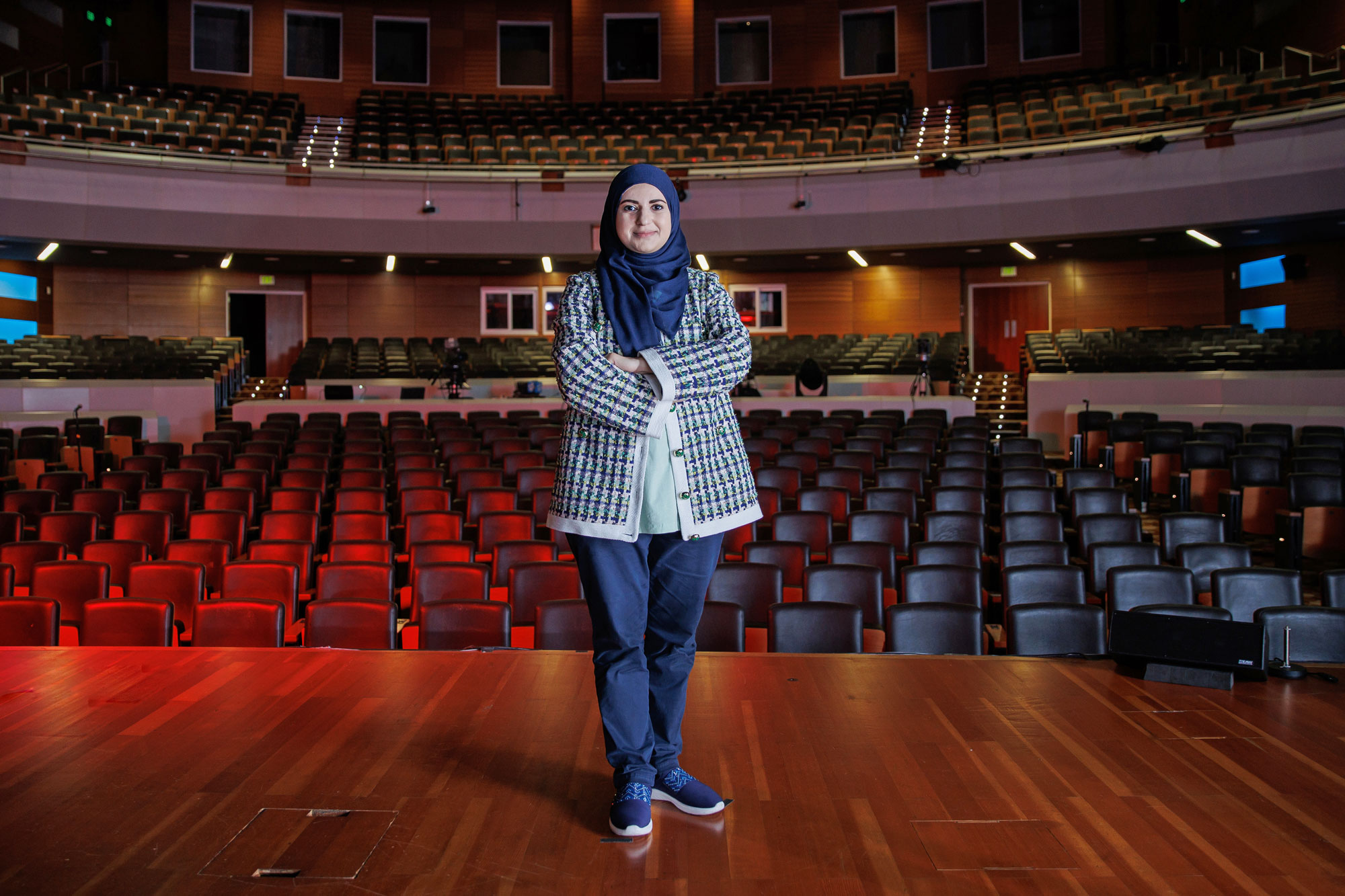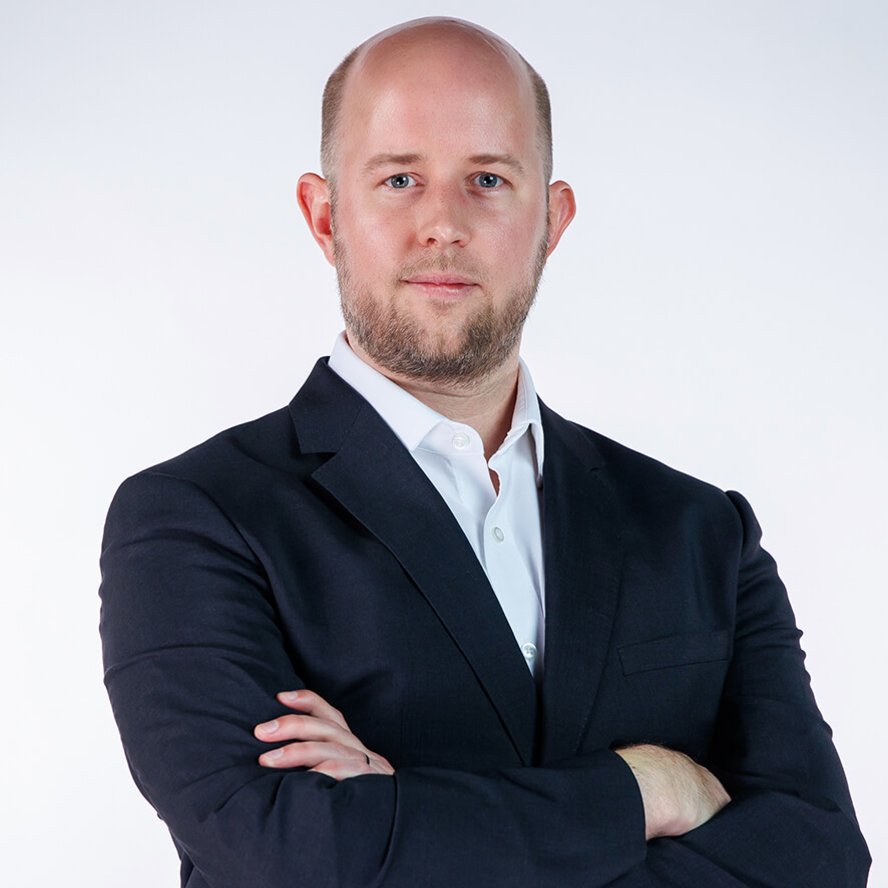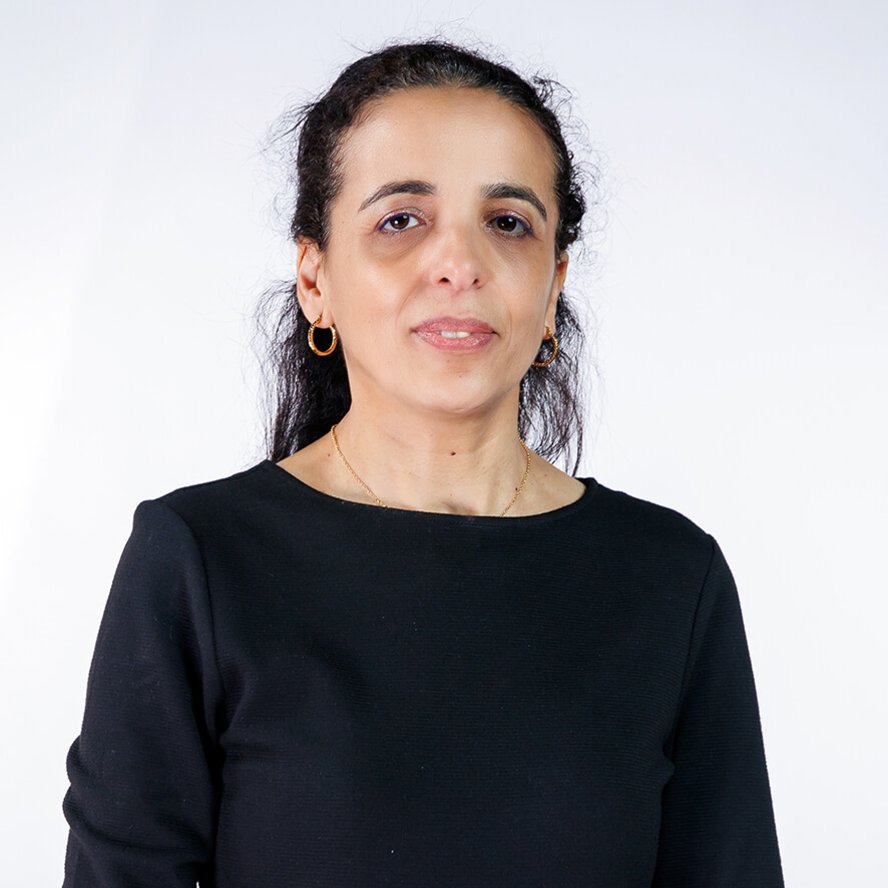
Even as a child, Professor Nazek El-Atab was interested in science and technology, and that interest was nurtured by both her parents. Her father was an electrical specialist, and she was fascinated and inspired by both his ability to fix anything that broke in their home and the happiness that his expertise brought to other people. Her mother had studied law, but still she encouraged El-Atab to pursue a degree in Computer and Communications Engineering from the Hariri Canadian University, Lebanon.
Despite her genuine interest, her chosen field of study did not captivate El-Atab in the way she hoped it would. It wasn’t until she began to explore beyond her major that she was introduced to nanotechnology, and this launched her career on its current trajectory; “I wanted to really play with the materials,” she shares, “tune their properties, and then use them in electronic devices that can make our lives better.” She completed her master’s degree at Masdar Institute of Science and Technology, Abu Dhabi, followed by her Ph.D. in Interdisciplinary Engineering at the same university, under a cooperative program with Massachusetts Institute of Technology (MIT), and funded by the United States Office of Naval Research.
El-Atab first came to KAUST as a research scientist, and in 2021 she joined the faculty as Assistant Professor. Her research since then has focused on the design and development of smart, multi-functional, electronic devices that minimize data movement, footprint, power consumption and cost. “Artificial Intelligence,” El-Atab explains, by way of example, “is based on humongous amounts of data, which needs to be transmitted and analyzed as quickly as possible, ideally in real time.” The devices she’s developing therefore use smart materials and nanotechnology to integrate what might be thought of as conventional functions into a single device, allowing for data to be processed at astonishing speed.
The technological promise of this research has a truly enormous reach; the possibilities may well be endless. It’s this potential for global impact that drives El-Atab in her work. Her day-to-day life at KAUST involves a lot of lab work and hands-on research, but her favorite part of the job is undoubtedly her interactions with students and postdocs.
When it comes to advising and mentoring students, El-Atab considers each one very carefully. “We need to empower them,” she says, “to focus on their strengths and minimize their weaknesses.” The best way, she finds, is to watch how students react to the results of their experiments. Some of the most exciting moments in research, according to El-Atab, are when an experiment produces unexpected results that can then be explained. “Bad results are good results,” she offers, “as long as you are able to explain them.”
It’s clear that in addition to the impact her research is likely to have on the world, El-Atab has already made a profound impact on her chosen area of research. For her work so far, she has received a number of awards and honors, including a Women in Science Middle East Fellowship by L’Oreal-UNESCO, an International Rising Talents Award by L’Oreal-UNESCO, an Electronic Engineering and Computer Science Rising Star Award at University of California, Berkeley, the Institute of Electrical and Electronics Engineers (IEEE) Nanotechnology Student Travel Award, an IEEE Electron Devices Society Distinguished Lecturer Honor, as well as being featured in the NEOM Changemakers series and being chosen as one of 10 Innovators under 35 by MIT Technology Review Arabia.
As a mother to her one-year-old daughter, El-Atab ensures that her life is not entirely taken up with work. She and her husband enjoy their family life at KAUST, with no shortage of recreational facilities, on top of which she enjoys playing basketball, tennis, table tennis and squash. She has every intention of instilling the same love for science and technology in her daughter, but she feels it’s most important to encourage her daughter down whichever path she might choose for herself. “You need to be passionate about what you do,” El-Atab concludes with sincerity, “whether it’s in science and technology or any other field, as long as you’re contributing to the world.”



